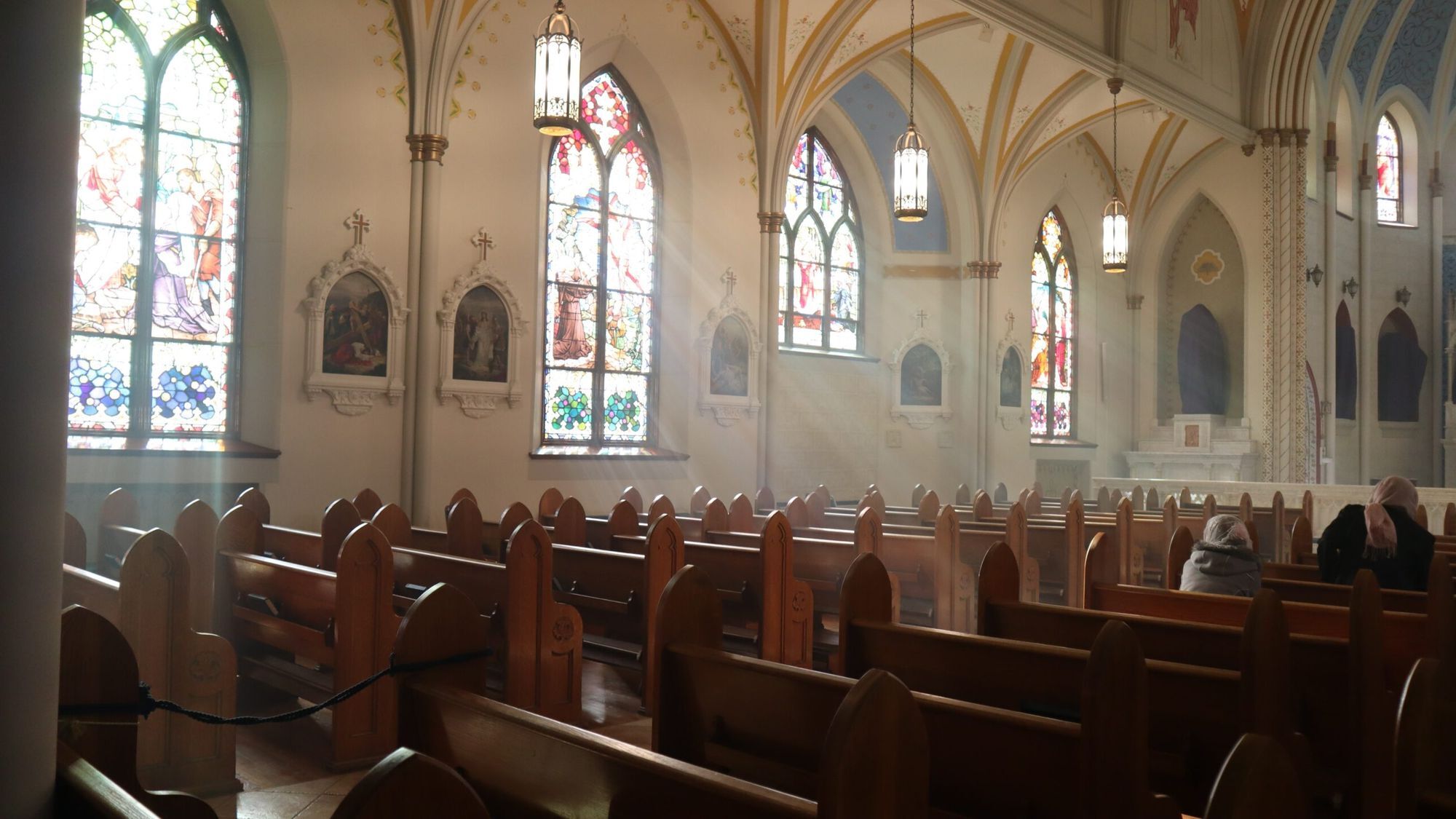
Why is Sunday called the Lord's Day? Sunday, known as the Lord's Day, holds a special place in Christianity. It's the first day of the week in the Hebrew calendar and is distinct from the Jewish Sabbath, which falls on Saturday. The term "Lord's Day" first appears in the New Testament in Revelation 1:10, where John of Patmos mentions being "in the Spirit on the Lord’s day." Early Christians observed Sunday as a day of worship and rest, celebrating Jesus' resurrection. Over time, historical events like Constantine's edict in 321 AD and the Council of Nicaea in 325 AD solidified Sunday as a universal day of Christian worship.
Key Takeaways:
- The Lord's Day, known as Sunday, has deep roots in early Christianity, with biblical origins and historical developments that emphasize its significance for worship and rest.
- Sunday holds spiritual and cultural importance for Christians, with early Christian writings, historical support, and contemporary observance highlighting its role as a day of rest and worship.
The Biblical Origins of the Lord's Day
The Lord's Day, commonly known as Sunday, holds a special place in Christianity. Its roots trace back to the Bible and early Christian traditions.
-
Biblical Origins: The term "Lord's Day" first appears in Revelation 1:10, where John of Patmos mentions being "in the Spirit on the Lord’s day." This indicates early Christians recognized Sunday as distinct from the Jewish Sabbath.
-
Sunday as the First Day of the Week: In the Hebrew calendar, Sunday is the first day of the week. This sets it apart from the Jewish Sabbath, which is observed on Saturday.
Early Christian Observance
From the earliest days, Christians have gathered on Sundays for worship and fellowship. This tradition has deep historical roots.
-
Early Christian Observance: The Didache, a document from 70-120 AD, instructs Christians to gather on the Lord’s day for communal worship and to break bread, showing early Sunday observance.
-
The Epistle of Barnabas: Written around 100 AD, this text states that Christians keep Sunday with joyfulness, celebrating Jesus' resurrection.
Historical Developments
Over time, the observance of Sunday as the Lord's Day became more formalized through various decrees and councils.
-
Constantine's Edict: In 321 AD, Emperor Constantine mandated Sunday as a day of rest and worship, formalizing an existing tradition.
-
Council of Nicaea: In 325 AD, the council emphasized Sunday as a universal day of worship, reinforcing its importance.
Testimonies from Early Church Fathers
Prominent early Christian leaders wrote extensively about the significance of Sunday.
-
Athanasius’ Testimony: Athanasius noted that Christians no longer observed the Jewish Sabbath but lived according to the Lord’s life, symbolized by Jesus' resurrection.
-
Historical Evidence: Writers like Ignatius of Antioch and Eusebius confirm that Sunday was universally observed as a day of worship from the time of the apostles.
Sunday as a Day of Worship and Rest
Sunday is not only a day of worship but also a day of rest, reflecting its spiritual significance.
-
The Didascalia Apostolorum: This early Christian document instructs believers to gather on Sunday for prayer, the Eucharist, and other spiritual activities.
-
Sunday as a Day of Rest: Early Christians followed the biblical command to keep the Sabbath holy, but they observed this on Sunday instead of Saturday.
The Role of the Holy Spirit
Sunday holds a special spiritual significance for Christians, being a day to attune to the Holy Spirit.
- The Role of the Holy Spirit: Revelation 1:10 mentions being in the Spirit on the Lord’s day, highlighting Sunday as a day for spiritual connection.
Theological Significance
The shift from the Jewish Sabbath to Sunday carries deep theological implications.
-
The Lord’s Day in Early Church Fathers: Ignatius of Antioch and Irenaeus emphasized Sunday as a day commemorating Christ’s resurrection and its role in Christian worship.
-
Theological Significance: Sunday became a new day of rest and worship for Christians, symbolizing Christ’s resurrection and victory over death.
Liturgical Practices
Sunday worship involves various practices that have evolved over time but remain central to Christian observance.
-
Liturgical Practices: Sunday worship includes the Eucharist, public prayers, and sermons, which are central to Christian worship.
-
Holiness Pentecostalism: These churches observe Sunday with morning and evening services, emphasizing abstaining from worldly activities to maintain its spiritual significance.
Challenges and Contemporary Observance
Despite modern challenges, Sunday remains a central day of worship for Christians worldwide.
-
Commercialization and Secularization: Many denominations oppose the increasing commercialization of Sunday, advocating for its spiritual and communal character.
-
Pope John Paul II’s Teachings: His encyclical Dies Domini emphasizes the need for Christians to observe Sunday as a day of rest and worship.
Historical and Biblical Support
The observance of Sunday has both historical roots and biblical support, though not without some controversy.
-
Historical Development: While Constantine’s edict formalized Sunday observance, the practice itself was rooted in early Christian traditions and biblical teachings.
-
Biblical Support: Passages like Revelation 1:10 and Romans 8:3-4 highlight Sunday’s significance in Christian worship, though the Bible does not explicitly call it the Sabbath.
Different Perspectives
Not all Christian groups agree on Sunday observance, leading to different practices and beliefs.
- Seventh-Day Adventists: They argue that Saturday remains the true Sabbath, as it was observed by Jesus and the early Christian community.
Insights from Early Christian Writers
Early Christian writers provide valuable insights into the practice of Sunday observance.
- Early Christian Writers: Ignatius of Antioch and Eusebius wrote about Sunday as a day of worship and rest from the earliest days of Christianity.
Reformation and Beyond
The Protestant Reformation and subsequent councils continued to emphasize the importance of Sunday.
-
Council of Trent: This 16th-century council reaffirmed Sunday as a day of rest and worship, solidifying Catholic teaching on the matter.
-
Protestant Reformation: Reformers like Martin Luther and John Calvin emphasized Sunday observance to maintain a strong Christian community.
Contemporary Observance and Cultural Impact
Today, Sunday remains a central day of worship with significant cultural impact.
-
Contemporary Observance: While practices vary among denominations, the core principles of observing Sunday as a day of rest and worship remain consistent.
-
Cultural Impact: Sunday observance influences religious practices and societal norms, with many countries having laws that protect Sunday as a day of rest.
The Significance of the Lord's Day
The Lord's Day stands as a cornerstone in Christianity, symbolizing Jesus' resurrection and victory over death. From its biblical origins in Revelation to its formalization by Emperor Constantine, Sunday has evolved into a day of worship and rest. Early Christian texts like the Didache and the Epistle of Barnabas highlight its importance, while councils like Nicaea and Trent solidified its observance. Despite debates from groups like Seventh-Day Adventists, Sunday remains central to Christian life. Its impact extends beyond religion, influencing societal norms and laws. Whether through liturgical practices or personal reflection, the Lord's Day continues to offer a moment for spiritual renewal and community. Understanding these facts enriches our appreciation for this sacred day, reminding us of its enduring significance in both religious and secular contexts.
Frequently Asked Questions
Was this page helpful?
Our commitment to delivering trustworthy and engaging content is at the heart of what we do. Each fact on our site is contributed by real users like you, bringing a wealth of diverse insights and information. To ensure the highest standards of accuracy and reliability, our dedicated editors meticulously review each submission. This process guarantees that the facts we share are not only fascinating but also credible. Trust in our commitment to quality and authenticity as you explore and learn with us.


